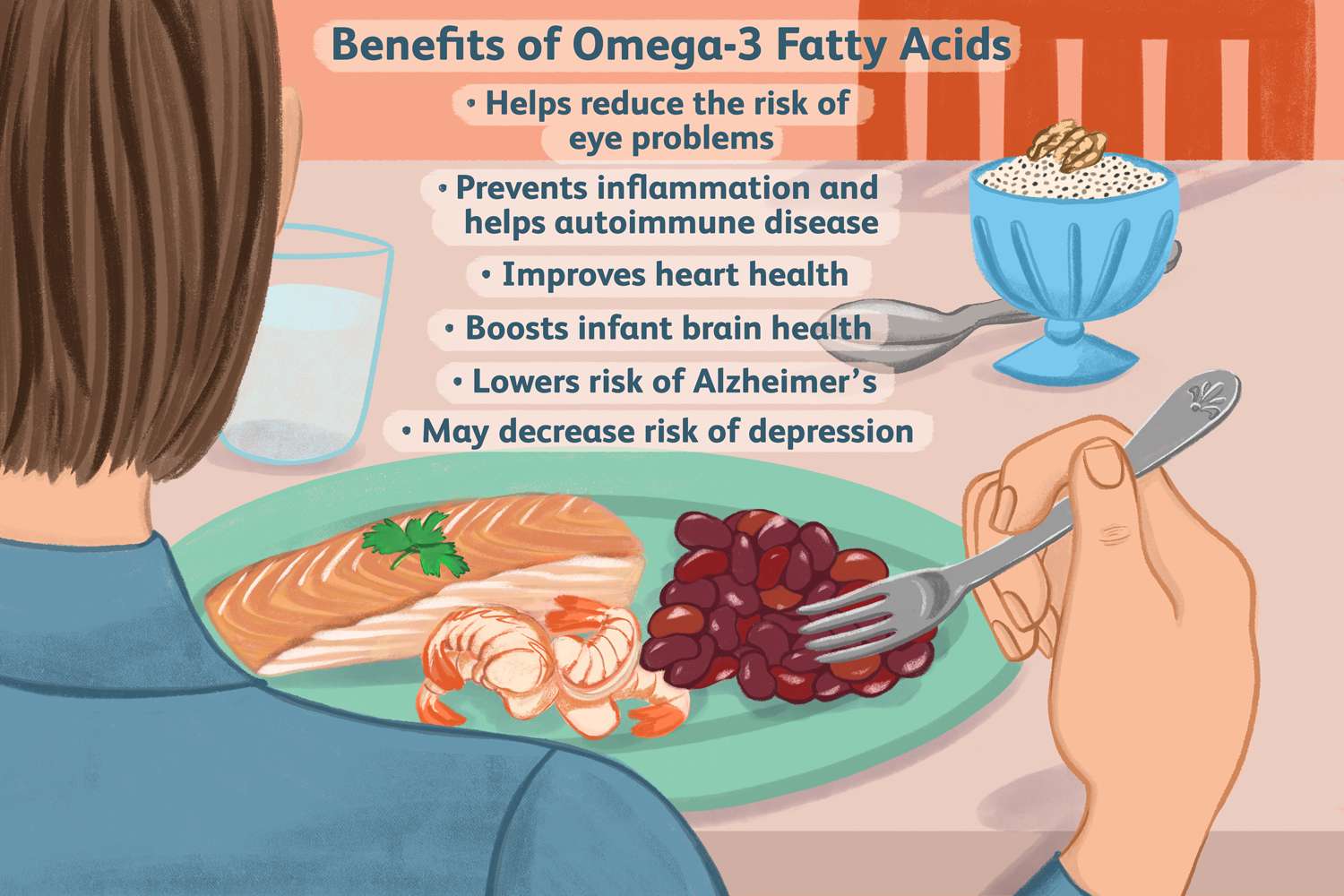Benefits of Omegas
Welcome to our comprehensive guide on the benefits of omegas. In this article, we will explore the various advantages of incorporating omega fatty acids into your diet and how they can positively impact your overall health and well-being.
The Importance of Omegas
Omega fatty acids are essential fats that play a crucial role in maintaining our health. They are classified into three main types: omega-3, omega-6, and omega-9. While all three are important, omega-3s have gained significant attention due to their numerous health benefits.
Omega-3 Fatty Acids
Omega-3 fatty acids are polyunsaturated fats that are known for their anti-inflammatory properties. They are primarily found in fatty fish such as salmon, mackerel, and sardines. Consuming omega-3s can provide various benefits, including:
Heart Health: Omega-3s have been shown to reduce the risk of heart disease by lowering triglyceride levels, reducing blood pressure, and preventing the formation of blood clots.
Brain Function: These fatty acids are essential for brain development and function. They have been linked to improved cognitive function, memory, and a reduced risk of neurodegenerative diseases.
Inflammation and Joint Health: Omega-3s have potent anti-inflammatory effects, making them beneficial for individuals suffering from conditions such as arthritis.
Mood and Mental Health: Research suggests that omega-3s may help reduce symptoms of depression and anxiety, promoting overall mental well-being.
Eye Health: DHA, a type of omega-3, is a major structural component of the retina. Consuming omega-3s can support optimal eye health and reduce the risk of age-related macular degeneration.
Omega-6 and Omega-9 Fatty Acids
Omega-6 and omega-9 fatty acids are also important for our health, although they are not as widely discussed as omega-3s. Omega-6s are found in vegetable oils, nuts, and seeds, while omega-9s are abundant in olive oil and avocados. These fatty acids offer benefits such as:
Healthy Skin: Omega-6 and omega-9 fatty acids contribute to maintaining healthy skin by promoting moisture retention and supporting skin barrier function.
Cholesterol Balance: Omega-6s and omega-9s can help maintain healthy cholesterol levels when consumed as part of a balanced diet.
Cell Membrane Structure: Omega-6 and omega-9 fatty acids are crucial for the structure and function of cell membranes throughout the body.
How to Incorporate Omegas into Your Diet
Now that we understand the benefits of omega fatty acids, let’s explore how you can easily incorporate them into your diet:
Eat Fatty Fish: Aim to consume fatty fish, such as salmon, mackerel, and sardines, at least twice a week.
Include Plant-Based Sources: Add sources of omega-3s, such as flaxseeds, chia seeds, and walnuts, to your meals and snacks.
Use Healthy Oils: Opt for oils rich in omega-6 and omega-9 fatty acids, such as olive oil, avocado oil, and sesame oil, in your cooking and salad dressings.
Consider Supplements: If it’s challenging to meet your omega-3 needs through food alone, you may consider omega-3 supplements derived from fish oil or algae-based sources.

Incorporating omega fatty acids, particularly omega-3s, into your diet can have a profound impact on your overall health and well-being. From supporting heart and brain health to reducing inflammation and promoting healthy skin, the benefits of omegas are undeniable. By following our tips on how to include omegas in your diet, you can optimize your nutritional intake and enjoy the advantages these essential fats have to offer.
Frequently Asked Questions about the Benefits of Omegas
1. What are omega-3 fatty acids?
Omega-3 fatty acids are essential fats that play a crucial role in brain function, heart health, and overall well-being.
2. How can omega-3s benefit my heart?
Omega-3s can help reduce inflammation, lower triglyceride levels, and improve overall heart health, reducing the risk of heart disease.
3. Are there any cognitive benefits associated with omega-3s?
Yes, omega-3s have been linked to improved cognitive function, memory, and even a reduced risk of age-related cognitive decline.
4. Can omega-3s help with joint pain and inflammation?
Studies suggest that omega-3 fatty acids have anti-inflammatory properties, which can help alleviate joint pain and reduce inflammation in conditions like arthritis.
5. Are there any benefits of omega-3s for pregnant women?
Absolutely! Omega-3s are crucial for fetal brain development, and they can also help reduce the risk of preterm birth and support a healthy pregnancy.
6. Can omega-3s improve eye health?
Yes, omega-3 fatty acids are essential for maintaining good eye health and may help prevent age-related macular degeneration and dry eyes.
7. Do omega-3s have any anti-inflammatory effects?
Yes, omega-3s are known to have anti-inflammatory effects and can help reduce inflammation throughout the body, promoting overall health.
8. Can omega-3s benefit mental health conditions?
Research suggests that omega-3s may have a positive impact on mental health conditions such as depression, anxiety, and bipolar disorder.
9. Are there any benefits of omega-3s for skin health?
Omega-3s help maintain healthy skin by reducing inflammation, preventing premature aging, and promoting moisture retention.
10. How can omega-3s benefit athletes and fitness enthusiasts?
Omega-3s can aid in muscle recovery, reduce exercise-induced inflammation, and improve overall athletic performance.




